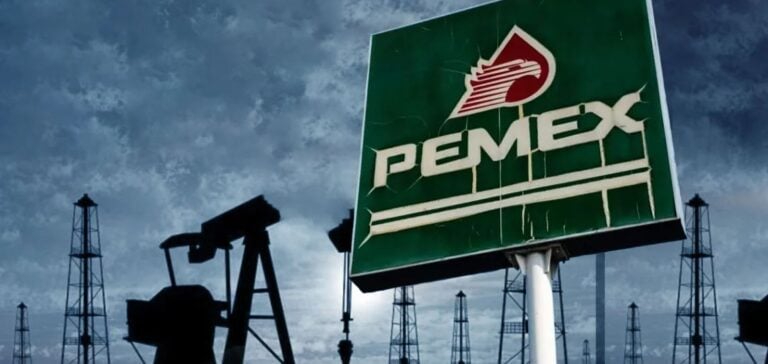The budget proposed by the Mexican government for 2025 allocates $22.75 billion to Petróleos Mexicanos (Pemex), marking a 7.5% decrease compared to 2024. This reduction raises concerns among experts, who consider the funding insufficient to allow the company to maintain or increase crude oil production, a cornerstone of the national economy.
Recent data indicates Pemex’s current production stands at 1.42 million barrels per day (b/d), a record low in four decades. While plans for 2025 include a slight production increase to 1.863 million b/d through new oil fields, analysts believe this goal is unrealistic without additional investments. Oscar Ocampo, an energy expert at the Mexican Institute for Competitiveness, emphasized that this budget “will not allow Pemex to reverse the declining trend.”
A Business Model Under Scrutiny
BBVA, Mexico’s largest bank, also criticizes the company’s current structure, stating that Pemex represents a financial burden on the state. Experts insist on revising Pemex’s business model to prevent an increased dependence on crude imports, especially to supply its refineries.
Despite stabilization efforts, Mexico risks being outpaced in oil production by countries like Argentina and Guyana in the coming years. Gonzalo Monroy, General Director of the consultancy GMEC, estimates that an annual investment of $20 billion is necessary to stabilize production, nearly double the current budget allocation.
Limited Scope for Alternative Projects
The 2025 budget excludes significant funding for renewable energy projects such as green hydrogen or geothermal energy, previously mentioned by Pemex. While this decision refocuses the company on its core operations, it also fails to diversify revenue streams or prepare Mexico for the energy transition.
Ongoing Challenges at the Olmeca Refinery
The Olmeca refinery, commonly known as Dos Bocas, highlights Pemex’s struggles. Initially budgeted at $8 billion, its real cost could reach $24 billion, and it remains largely incomplete despite its inauguration in July 2022. In September, the refinery produced only minimal outputs, according to data from the National Hydrocarbons Commission (CNH).
The ambition to reduce energy dependence on U.S. imports appears compromised by delays and budget overruns in this flagship project of former President Andrés Manuel López Obrador.
Experts’ Warnings
Many analysts warn of the risk that Mexico’s vast oil reserves may remain untapped due to a restrictive regulatory environment and a lack of long-term vision. Current policies may hinder the exploitation of national reserves, while other nations ramp up production.






















